Type:
Media philanthropy in Germany on the rise (Newsletter 007)
We’re taking a slightly different approach this year. Every month, we’ll give you a tour d’horizon of the media/philanthropy situation in one European country or sub-region. In coming months, we’ll take a closer look at Greece, Italy, Central and Eastern Europe, and France. As always, we want your input and leads. Please email info@journalismfundersforum.com, or tweet to @ejcnet or @sdp including the hashtag #JournalismFundersForum.
This month we’re starting in Germany, where 2019 was a significant year for public interest journalism and how it gets funded, and where 2020 promises bigger things still.
Who’s funding journalism in Germany?
With a mix of foundations, non-profit newsrooms like Correctiv.org, powerful publishers like Bertelsmann and Axel Springer, and thriving civic and for-profit tech communities, and with a large market, it has a different starting point from most of its neighbours. Germany has strong employment laws and labour rights protections, and longstanding innovations in ownership models, like the cooperatively-owned TAZ. Germany is not immune, however, to the same ill winds of anti-press rhetoric and harassment that increasing numbers of journalists and media face around the world.
Things have developed since 2017, when the JFF’s research piece on Germany media philanthropy in 2017 (written by Thomas Schneidler and Gunter Bartsch of Netzwerk Recherche).
In comparison to most other countries in Europe, German foundations supporting or interested in supporting journalism are getting more and more networked and active.
At the top level, the German association of philanthropic foundations, the Bundesverband Deutscher Stiftungen, estimates that, out of the 20,000 foundations in Germany, around 120 of them support journalism in some structured form. A few dozen of these foundations have formed a sub-group within the Bundesverband – an ‘Expertenkreis’ or ‘Expert Circle’ – dedicated to sharing information and expertise on journalism funding.
In collaboration with the Bundesverband, the Deutscher Journalisten-Verband (German Journalists’ Union) created a 2016 guide (in German) that provides practical examples of how diverse funders are supporting different types of journalism initiatives. These range from support for media development internationally (like the Konrad Adenauer Stiftung in Asia, for example), for new initiatives across Germany (like the Schöpflin Stiftung), and very locally-focused press foundations based at the city or Land level (like the Journalismus Lab of the Landesanstalt für Medien NRW ). Other foundations with a very public commitment to journalism – including those, like the ZEIT Stiftung or the Rudolf Augenstein Stiftung, that have emerged from actual news publications – are becoming increasingly vocal about the need for more and better media grantmaking in Germany and Europe more broadly. (Open Society’s move to Berlin from Budapest may yield other opportunities and momentum.)
Where do they meet, exchange and learn?
Alongside major meetings and conferences at which some journalism donors are present – whether more industry-focused specialist ones like FoME (on media development around the world) and Medienrechtstage or more open and public-facing ones like the annual Campfire Festival, or 2019’s Hamburg edition of the Global Investigative Journalism Conference – there are a range of events at which journalism gets aired, like Berlin’s re:publica (including the Global Innovation Gathering) and Munich’s Medientage. International donors are present in greater numbers at such events, and German donors are more active than ever in international fora like Perugia’s International Journalism Festival.
What this shows us is that there is genuine and growing appetite for learning and cross-pollination in the German journalism funding sphere and that there are nascent spaces sector itself has created a formal space for this to happen – something all national level philanthropic associations could take note of.
Who else is driving change and progress in the journalism sector?
There are a number of groups that – in addition to running journalism programmes and projects – conduct research, analysis and advocacy on behalf of the journalism field as a whole. While the international media development community has examples of groups working to strengthen the journalism and media sector in a variety of countries around the world, there are fewer domestically-focused organisations of this type in donor countries – but Germany has a few strong examples. Examples include the already-mentioned Netzwerk Recherche, n-ost who focus more on Eastern Europe, and social impact thinktank Phineo, which has been conducting research on non-profit journalism, and its approach to impact, in Germany and beyond. (The research will be published in the spring, but you can get your pre-order in by emailing redaktion@phineo.org).
Lastly, most recently, and significantly, a group of influential funders, journalists and civil society groups – led by Correctiv, Netzwerk Recherche and the Rudolf Augstein Stiftung – have formed a new coalition, “Forum Gemeinnütziger Journalismus“ – the Forum for Non-profit Journalism. The coalition is calling on the Bundesrat (the Lower House of the German Parliament) an amendment to the German Tax Code – with a draft that the public can comment on – to recognize the non-profit character and public benefit of journalism – in parallel to similar recent debates in Canada, Australia and the UK.
What else we’re reading this month
1. The Nieman Lab 2020 Predictions should keep you all more than busy for the next few weeks till our next edition…
2. This month’s special report by the Chronicle of Philanthropy looks at the key trends shaping the nonprofit world in the year ahead.
3. The new CIMA report explores ways of strengthening international cooperation in the media sector and examines the major obstacles and stumbling blocks that will have to be avoided if global support to the media sector is increased.
[You can read the online version of this edition here.]
